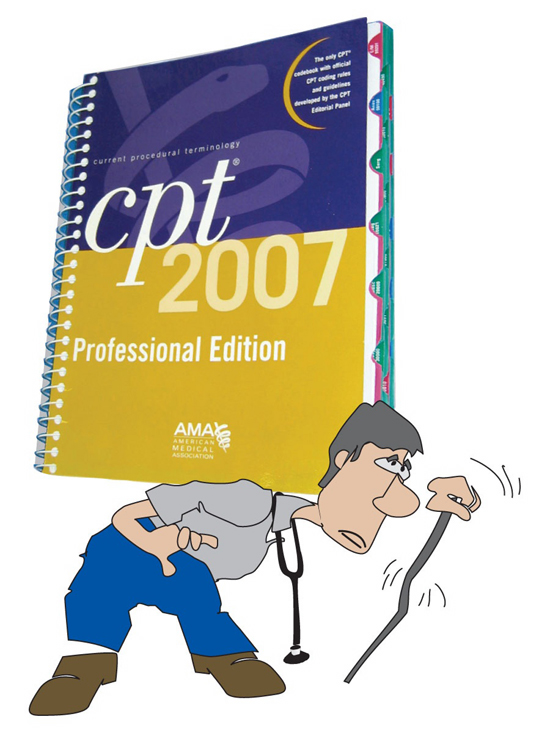By Dr Deane Waldman
Have you ever been a patient? If so, you know how incredibly complex, user-unfriendly and inefficient the whole billing/insurance system is. Do you know a doctor, nurse or hospital administrator? Ask them and they will say the same thing, louder and angrier: billing is exceedingly cumbersome, under-paying, always late, and inefficient. If the doctors don't benefit from this mess and the patients certainly do not, then who does benefit? Good question, and is it really "inefficient?"

Pictured above is one of last year's medical billing code books, containing 8805 five-digit or longer codes - more than the number of identified human diseases. Typically, it is "updated" (expanded) at least once a year. This book gives information required for just one of the 57 (!) different steps used to submit a medical bill.
Efficiency is usually defined as the least resources used for the most money gained. In health care billing, who gets the gain? The people who make profit are not the doctors or hospitals: the profit-makers are the insurance companies.
How do insurance companies make money? The formula is simple: collect lots of premiums and avoid spending the money. That means the more they delay payments; the more they reduce the amount paid; the more they deny payment altogether, the more profit they make. In other words, delaying, paying less or not paying at all for your medical care...generates profit.
And before you blame the big bad heartless insurance companies, remember that they are behaving just the way their stockholders - which probably includes YOU - want them to act. Your pension plan does not hold stock in HCA, United Health, or Blue Cross because they lose money. Your insurance company is not the culprit. The dastardly villain smirking while twirling his handlebar moustaches is the system.
PS. If - a big if - so-called universal health care saves money, it will do so by simplification. This means three things: 1) The middleman profit will go away; 2) Reducing the bureaucracy and red tape will put thousands out of work; and 3) The value of your insurance stocks will end up in the toilet.

No comments:
Post a Comment